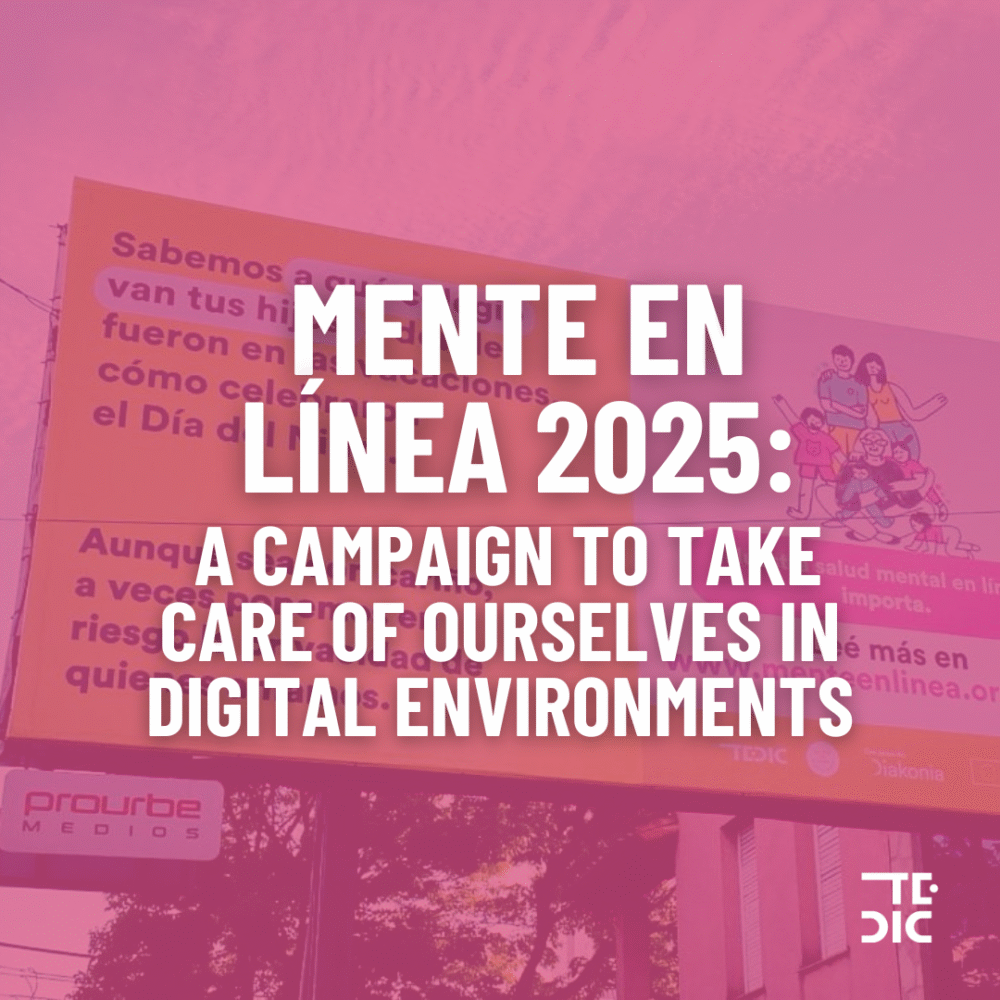
The current reality is quite clear (and a little alarming): we need to be connected all the time. We endlessly scroll, check WhatsApp groups at any hour, turn on the TV just to watch videos on our phone. We live in a loop of constant hyper-stimulation. And especially children spend more hours than recommended in front of screens, which can affect their development and emotional well-being.
Mente en línea, an initiative launched by TEDIC in 2021, seeks to open a conversation about the intersection between mental health and the digital world. Technology is no longer part of our daily life—it is our daily life—and the state of hyper-digitalization in which we constantly find ourselves has real effects on our minds.
The website www.menteenlinea.org offers resources such as papers, fanzines, podcasts, and videos that help us understand how technologies are designed to keep us hooked: via infinite scroll, constant notifications, and the fear of missing out. And although we may have normalized this mechanism, the excessive use of platforms and apps can directly impact our self-esteem, concentration, sleep, and anxiety levels.
To continue expanding resources on the topic—and because technologies advance and update ever more frequently—TEDIC is relaunching the Mente en línea campaign. In this new phase, we are generating new digital and print materials, as well as updating some that were already available. For this work, the team from Psicofem, the Sociedad Paraguaya de Psiquiatría, and Dr. Rodrigo Ramalho have teamed up, bringing their expert perspectives to create two new materials and update three previous fanzines. We have also developed promotional materials such as videos, featuring the experts themselves.
Child online privacy: the problem of over-exposure
The new fanzine, developed by TEDIC together with Psicofem and the Sociedad Paraguaya de Psiquiatría, addresses an urgent conversation: children’s exposure in digital environments. In an era in which everyday life is shared almost in real-time, we often do not fully comprehend the consequences of publishing information about girls, boys and adolescents—whether in social networks, groups, or open platforms—without their consent.
At TEDIC, this topic is closely linked to our line of work in digital rights, because over-exposure not only undermines privacy, but can lead to broader forms of digital violence. When a child’s personal information becomes public, it can be used for bullying, harassment, or even to place them in risky situations.
In a context where bullying has already transcended classrooms and is replicated online, caring about what we share is also a form of emotional and community protection.
The fanzine “Child Online Privacy” invites us to build a healthy dialogue with children about what it means to share their image and information, and offers practical tools for parents and caregivers. Among them: guidance on how to accompany their use of platforms, how to configure safer digital environments, and how to identify potentially dangerous interactions.
It’s not about prohibition, but about learning together how to inhabit the internet from a place of care, respect and autonomy.
New materials and updated fanzines: continuing to reflect on digital mental health
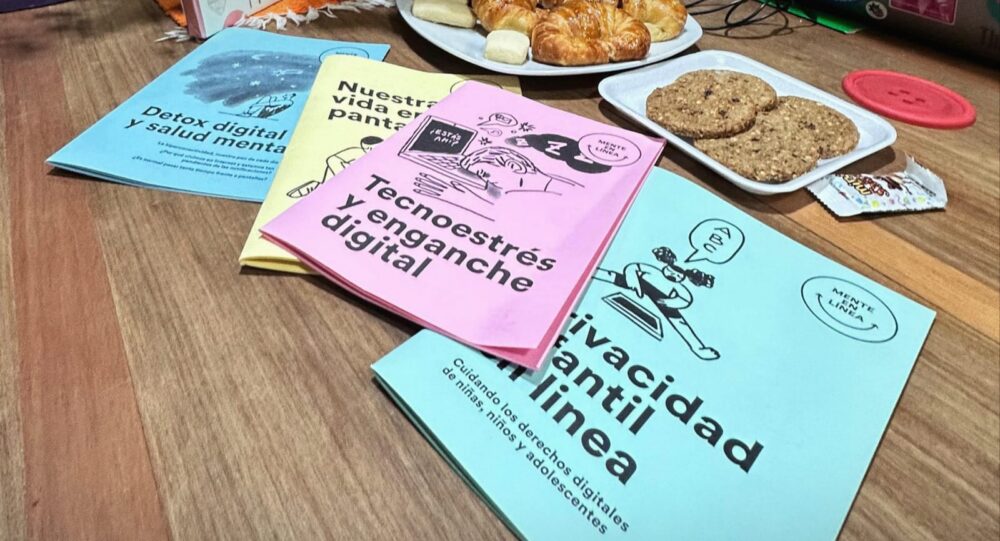
As part of this new phase of Mente en Línea and continuing the work carried out with Psicofem and the Sociedad Paraguaya de Psiquiatría, TEDIC has updated three of our most-read fanzines with the aim of offering up-to-date, accessible information based on the professional experience of those who work in mental health.
In “Techno-stress and digital hooking,” we explore how platforms are designed to capture and maintain our attention, generating a cycle of constant connection that can affect our rest, concentration and emotional well-being.
In “Digital detox and mental health,” we propose ways to consciously disconnect, addressing the effects of hyper-connectivity on our physical and emotional health, and incorporating tools for self-care and collective care.
And in “Our life on screens,” we reflect on our daily relationship with devices and provide recommendations for healthier use—especially among children—promoting adult accompaniment and educational and playful content.
These updates are part of TEDIC’s commitment to continue generating resources that help us inhabit the digital world from care, reflection and awareness about how technologies influence our perception, our relationships and our well-being in general. By clicking here you can find them: www.menteenlinea.org.
Training and spaces for conversation: continuing learning together
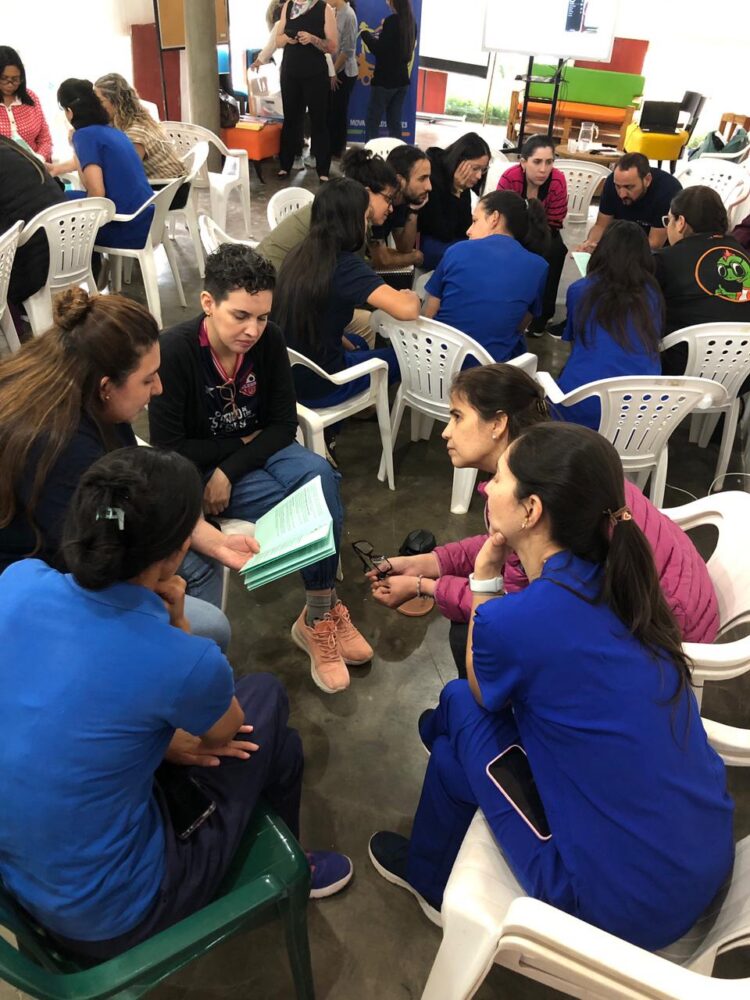
Based on the shared learnings with Psicofem and the Sociedad Paraguaya de Psiquiatría, TEDIC drives spaces for training and dialogue with professionals and future professionals in the mental health field. These workshops aim to provide tools to accompany families from an integral perspective that takes into account both emotional well-being and digital rights.
One of the most meaningful meetings took place at the Fundación Teletón, where therapists and professionals shared their experiences and concerns regarding the online privacy and exposure of girls, boys and adolescents. During the exchange, a common concern emerged: today, talking about children’s digital lives is an urgent necessity.
The participants highlighted the importance of opening conversations with families about the boundaries and care when sharing information on the internet, understanding that over-exposure can generate emotional and social consequences, and even affect peer relationships.
Another training space was held with students and teachers from the Universidad Nacional de Asunción (UNA), where the links between mental health and technology were addressed from a digital security perspective. The reflection focused on how our everyday online interactions affect our bodies, emotions, and ways of relating to others, inviting us to think about safer and more sustainable practices in the use of technologies.
To close the cycle, representatives from Psicofem and the Paraguayan Society of Psychiatry also participated in a meeting at La Perrera, where they shared their knowledge with the public about digital detox, technostress, and the daily impact of technology on mental health. In this more pop and open space, the conversation revolved around how screens influence our habits, relationships, and rest times, inviting us to think about more balanced and conscious ways of inhabiting the digital world without losing enjoyment or connection with others.
These meeting spaces help us reaffirm that taking care of our digital mental health does not mean disconnecting or isolating ourselves, but rather learning to use technology consciously, with limits and collective care. Talking about these issues is also a way to protect ourselves and build more humane and empathetic digital environments.
Cybersecurity and public health: a political view on health data
In addition to materials and training spaces, this new phase of Mente en Linea incorporates a more political perspective with the publication of the white paper “Cybersecurity and Public Health,” elaborated by Dr. Rodrigo Ramalho. In this material, the author analyses how the management and protection of health data must be understood as a question of public health and human rights.
Ramalho starts from the “health in all policies” approach to show that personal health-related data are not just technical information, but an intimate component of our lives. When these data are managed inadequately—due to lack of protocols, infrastructure or training—the consequences can be deep: from the violation of access to medical services to the impact on people’s interpersonal, work or community relationships.
The paper also addresses how technology-facilitated gender-based violence and other digital threats directly impact the mental and physical health of the most vulnerable populations. From this critical view, Ramalho proposes reviewing the National Cybersecurity Strategy, pointing out the need to incorporate a health, gender and rights perspective into public policies that regulate data protection in Paraguay.
This reflection broadens the horizon of Mente en línea reminding us that digital well-being does not depend only on our individual practices, but also on structural decisions made by states about how our bodies and digital lives are protected—or exposed.
Our reflections on the street, on social media, in the media
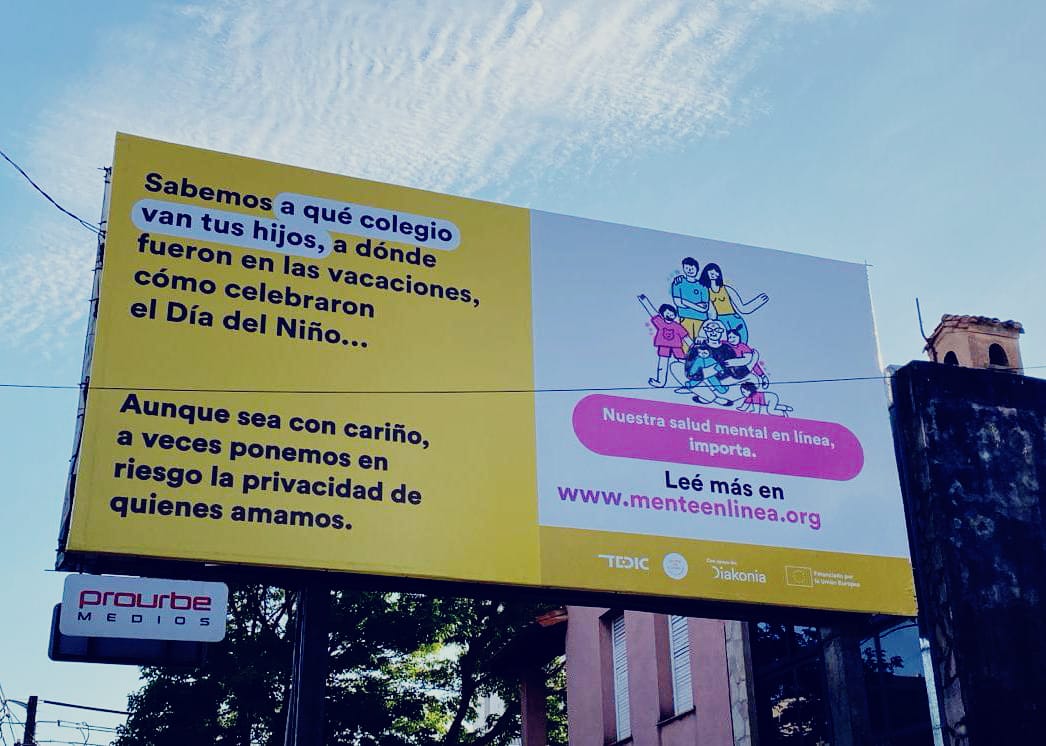
As part of this new phase, we also decided to bring our campaign to another level and took to the public space, seeking to engage and reflect with city-passersby in Asunción. With three distinct messages about hyperconnection and child online privacy, we were present in five strategic outdoor advertising spaces.
The campaign included digital spaces, via LED screens, and static billboards, promoting our main message: “Mental health online matters”.
We also reinforced our messages on social media. We produced audiovisual materials to promote the content of the new fanzine and the updates of previous materials. The videos, with an educational and playful tone, feature the authors of the materials themselves, who from a holistic perspective explain the concepts better, give us recommendations and also invite us to read the fanzines to deepen our understanding of the content.
We also took the opportunity to give some interviews in press media, giving emphasis to the overall campaign, which is available online at www.menteenlinea.org
As an organization that defends and protects digital rights online, we consider that mental health is a fundamental right that must also be guaranteed in digital environments. We will continue promoting actions, communication campaigns and training that allow us to open conversations, build alliances and transform our ways of caring for ourselves online, from a collective and conscious place.


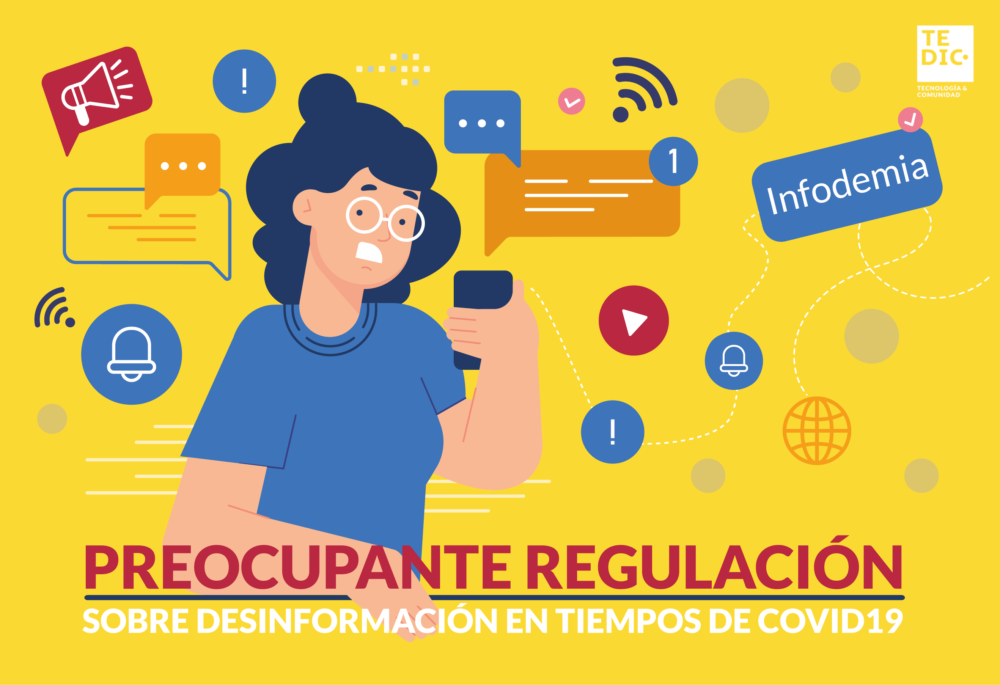 Worrisome regulation on disinformation in times of COVID19
Worrisome regulation on disinformation in times of COVID19